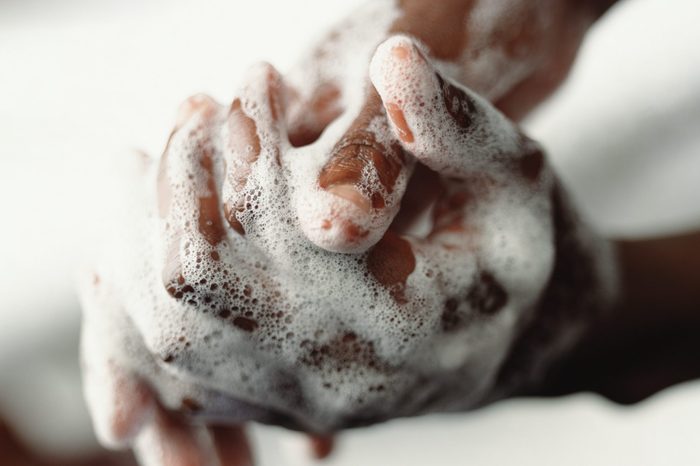
Hand-washing works
One major point the COVID-19 pandemic helped drive home is how important it is to wash your hands. Washing your hands is essential to good hygiene and stopping germs from spreading. Washing your hands limits the transfer of bacteria, viruses, and other germs, according to the Mayo Clinic.
Here’s the right way to wash your hands: The Centers for Disease Control and Prevention recommend using soap and clean water or an alcohol-based hand sanitizer, at least 60% alcohol, to wash your hands. Studies have backed this up, showing both are effective ways of managing germs.
Of course, it’s impossible to keep your hands 100% germ-free all the time (plus, some bacteria are good for you!), but scientific research has shown that washing your hands is an especially touchy task after you’ve made contact with the following 10 items.
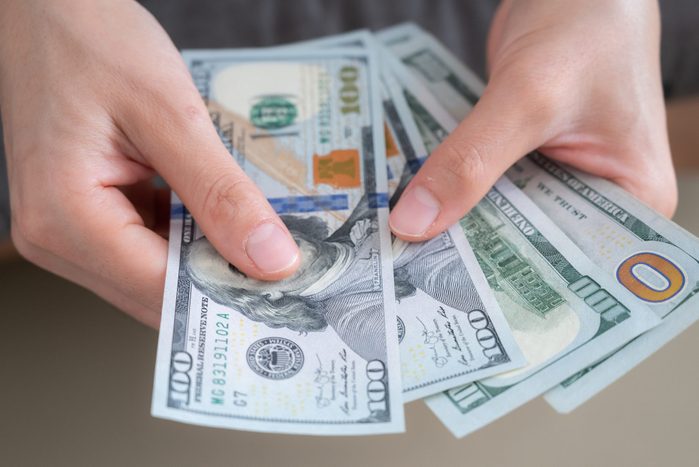
Money
These days you can use a debit or credit card for most purchases, but sometimes you just need to handle cash. When you do, be sure to wash your hands as soon as possible. Researchers tested $1 bills from a New York City bank and found hundreds of microorganisms, including oral and vaginal bacteria, and DNA from pets and viruses.
Similar research has shown some cash and coins even contain pathogens like E. coli and Salmonella. It doesn’t help that money circulates for a while—$100 bills can circulate for as long as 15 years, according to the Federal Reserve.
Research Shows This Gross (but Common) Behavior May Increase Alzheimer’s Risk
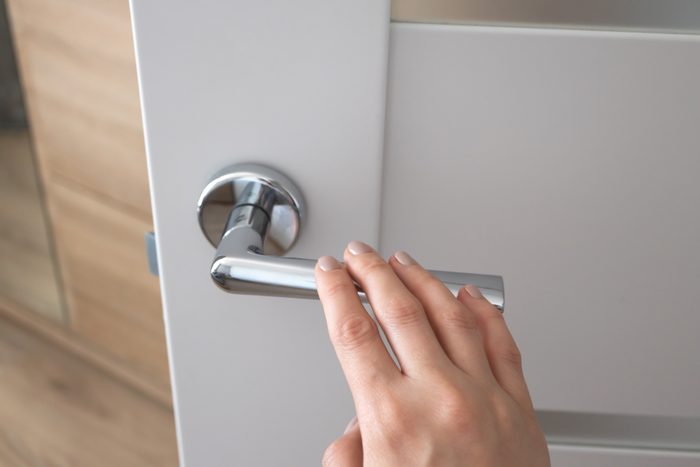
Handrails, handles, or doorknobs
Katy Burris, MD, a dermatologist at Columbia University Medical Center in New York City, says one of the critical times to remember to wash is after riding public transportation, where multiple people are continuously touching the same surfaces. This includes everything from handrails on an escalator to poles on the subway to bathroom door handles.

Restaurant menus
Restaurants can be one of the places you’re most likely to catch a virus—but the menu is the worst carrier. Researchers at the University of Arizona swabbed restaurant menus to find they bore a remarkable 185,000 bacterial organisms.
It makes sense, as so many people handle restaurant menus, including restaurant staff who also handle other customers’ soiled dishes and flatware. You may not be able to avoid touching that menu, but do wash your hands after you put your order in.
If you order from the QR menu, wash your hands then, too—keep reading to find out why.
The Gross Reason You Should Never Pepper Your Food in Restaurants
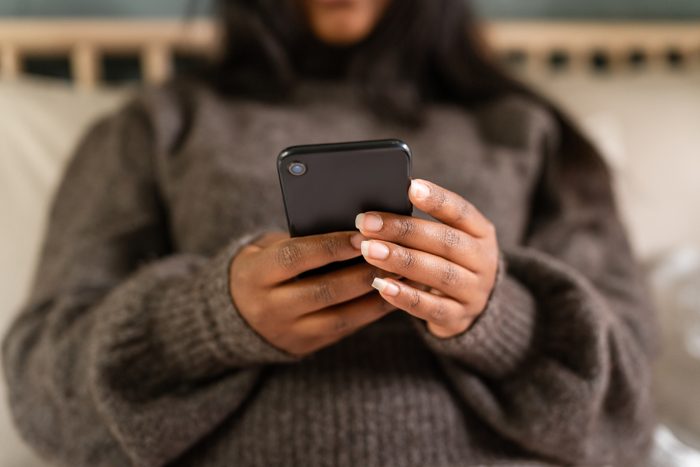
Touchscreens
Now that technology replaces some paper goods, it’s key to wash your hands after touching any screens. One of the worst offenders are kiosk machines in airports or public transportation locations, Dr. Burris says. “Germs are everywhere, and some places may harbor more than you may realize,” she says.
Cell phones count, too; especially as we may share them with others. The good news: “Simple washing with soap and water will reduce transmission of these pathogens,” Dr. Burris says.
Here’s the Right Way to Disinfect Your Phone to Kill Coronavirus
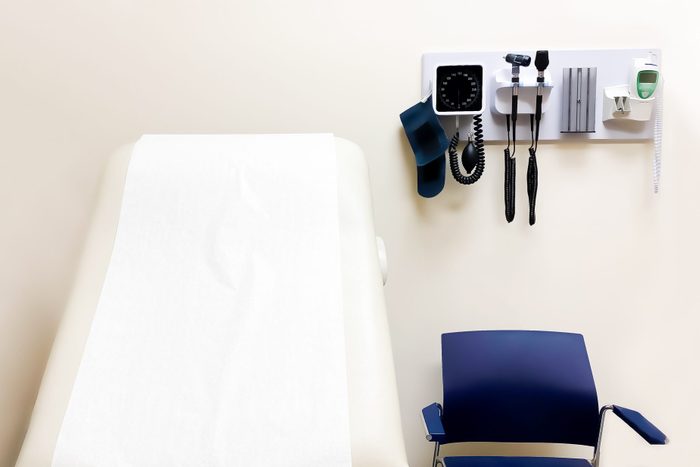
Almost anything in a doctor’s office
Thanks to a parade of patients coming through all day, most things in a doctor’s office harbor germs or bacteria—especially the sign-in pen. In fact, there are 46,000 more germs on that pen than on an average toilet seat.
Other secretly icky spots to avoid are the waiting room chair armrest and the door handle.
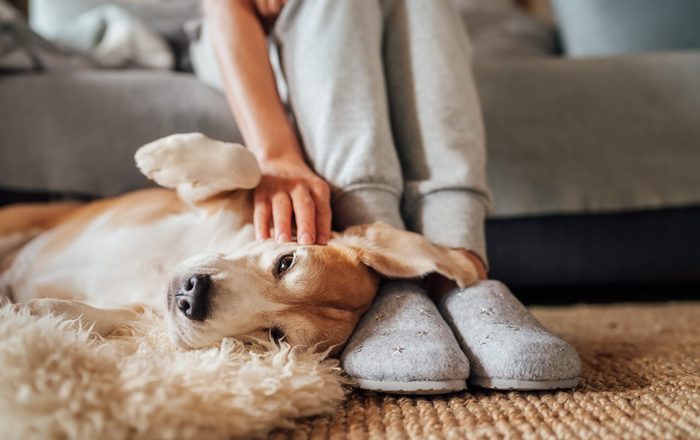
Any animals
Not everyone washes their hands after touching pets or animals, but they should, according to Nesochi Okeke-Igbokwe, MD. “Animals may carry various diseases,” she says. “And because pets are generally thought of as family friendly, hand-washing is sometimes overlooked.”
Hand-washing after touching animals or interacting with pets, whether yours or someone else’s, is important.
Should Your Dog Be Sleeping in Your Bed? Here’s What the Experts Say
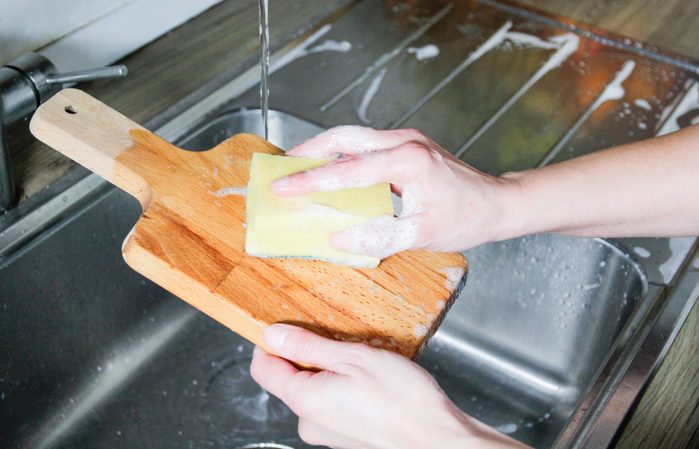
Cutting boards and kitchen sponges
The kitchen is a germy environment. You are not only bringing in uncooked food, but also moving around germs from food, utensils, and textiles, like kitchen towels and sponges. One study found as many as 326 different species of bacteria living on used kitchen sponges. Be sure to toss out the old ones and, as Dr. Burris suggests, always wash your hands before preparing a meal and after handling raw meats.
How to Make a Vinegar Fruit Wash That Really Cleans Your Produce

Pens that aren’t yours
Although many people use their phone or computer to take notes and write lists, sometimes you just need to borrow a pen. That’s fine, but wash your hands after using it.
The average office pen has 10 times the germs of the average office toilet seat, at about 200 bacteria per square inch, according to the Wall Street Journal. If that doesn’t gross you out, consider that many people like to chew or gnaw on pen caps. Yuck!
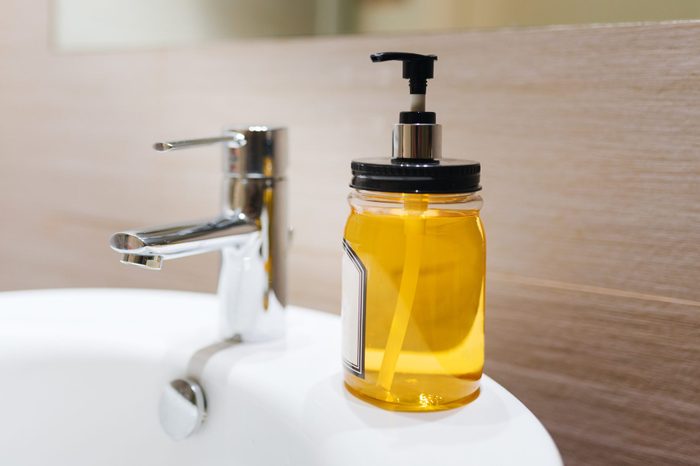
Soap dispensers or pumps
Remember the Friends episode where Joey and Chandler are arguing over hygiene habits, and Chandler calls soap “self-cleaning”?
“Alright,” says Joey. “Next time you take a shower, think about the last thing I wash, and the first thing you wash!”
It was a bright Joey moment…but do you need to wash your soap? Sort of. Soap dispenser pumps are a reported haven for bacteria. Researchers from the University of Arizona found refillable soap dispensers especially germ-laden. As you’re pressing the pump, any bacteria you’re hoping to wash off has an equal opportunity to get transferred onto the dispenser. Lead researcher Charles Gerba, PhD, suggested that touching refillable soap containers can actually transfer more bacteria to your hands than if you stuck your hands in a toilet.
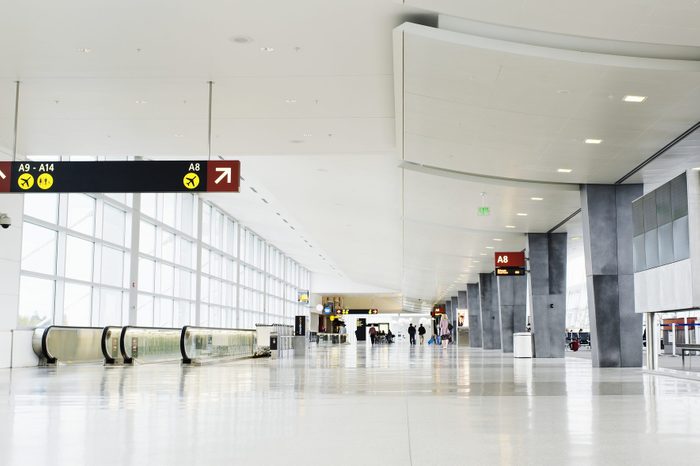
Pretty much anything in an airport
Roughly 2.6 million airline passengers are traveling every day, according to the Federal Aviation Administration. More people means more germs, and more shared public surfaces where you’ll encounter them.
Avoid touching doorknobs, water fountains, kiosk screens, and especially those plastic tubs and trays in the airport security line. People put their dirty shoes and bags in those trays, leading to contamination, according to research published in BMC Infectious Diseases. Keep hand sanitizer or sanitizing wipes tucked in a handy spot in your carry-on!
